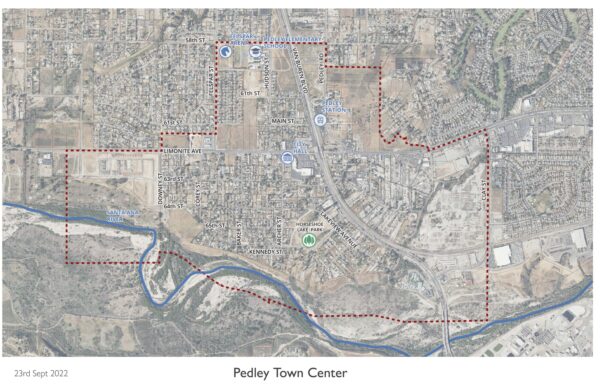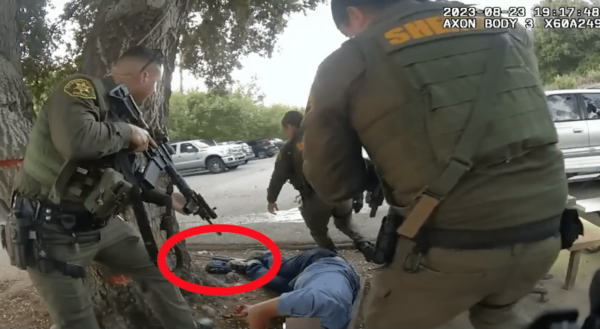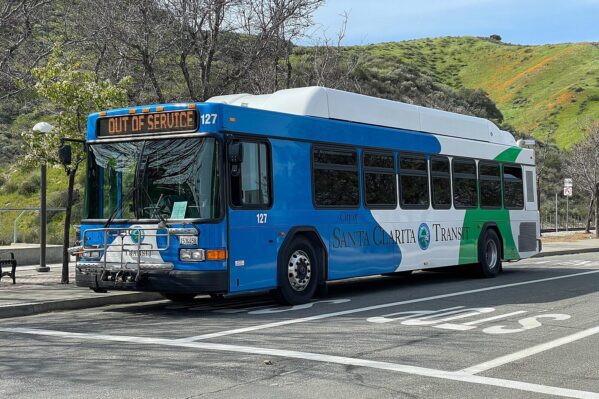Thousands of Kaiser Permanente health care workers in Southern California and beyond were returning to work Saturday following a three-day strike billed as the largest of its type in U.S. history.
Workers started returning as of 6 a.m. and officials with the Coalition of Kaiser Permanente Unions and the healthcare provider said contract negotiations are set to resume Thursday.
However, the unions said they may issue a 10-day strike notice Saturday, potentially setting the stage for further walkouts if a contract agreement is not reached.
Kaiser officials said that while the next “large, in-person bargaining session” is scheduled for Thursday, although in the meantime, “committees and local bargaining teams representing both sides will continue to meet.”
Early Saturday, Kaiser officials said they were happy to have the healthcare workers back on the job.
“We are pleased to welcome back our employees who participated in this week’s strike,” the statement from spokesman Terry Kanakri said. “With the current strike behind us as of 6 a.m. today, our collective focus is a return to normal operations. That will be different in differing locations. We are deeply appreciative of our members for their patience during the last three days.”
Kaiser members can find more details at the KP.org website.
Meanwhile, the unions said they remain committed gaining improved working conditions and better salaries for the workers they represent.
“As frontline healthcare workers conclude the current strike action on Saturday morning, our resolve to advocate for the safe staffing that our patients need has never been stronger,” Georgette Bradford, an ultrasound technician from Sacramento who is a member of the union’s bargaining team, said in a statement released Friday by the union.
“Following this historic work action by tens of thousands of frontline healthcare workers in response to unfair labor practices by Kaiser executives, we are hopeful that the company will refrain from any further violations of federal labor laws as we resume formal talks on Thursday.
“Frontline healthcare workers remain ready to continue taking the necessary steps to protect our patients from the dangers of the Kaiser short staffing crisis and to defend our rights,” Bradford said.
A representative for Kaiser said in a statement Friday morning that most procedures were not delayed by the strike, and contingency plans were in place to minimize disruptions.
“We are fortunate that most procedures were not delayed or deferred, most routine surgeries were not rescheduled and our ambulatory appointment access has been close to normal, in part because we expanded access just prior to the visit and converted many appointments to phone and video,” Kaiser officials said. “Kaiser Permanente remains committed to reaching an agreement that is good for our employees, our members, and our organization, and we will continue to bargain in good faith with our Coalition partners.”
The workers’ contract expired Sept. 30, but bargaining continued over the weekend and again Monday, Tuesday and through the night into Wednesday, to no avail. The strike began at 6 a.m. Wednesday.
“Now more than ever Kaiser Permanente needs to retain and attract qualified healthcare professionals. Outsourcing and subcontracting would have the opposite effect,” Kathleen Coleman, a medical assistant at Arapahoe Primary Care in Colorado, said in a statement released by the union Friday.
An estimated 75,000 Kaiser workers took part in the strike, according to the Coalition. In addition to California, picketing took place in Colorado, Washington, Oregon, Virginia and Washington, D.C.
The coalition has been pushing for higher wages commensurate with inflation, increased staffing and working conditions. The unions have also repeatedly accused Kaiser of negotiating in bad-faith, an allegation Kaiser has denied.
“At issue, health care workers say, are a series of unfair labor practices related to bargaining in bad faith, along with simmering staff concerns related to unsafe staffing levels that can lead to dangerously long wait times, mistaken diagnosis, and neglect,” according to an earlier union statement.
“After years of the COVID pandemic and chronic understaffing, Kaiser healthcare workers are calling on management to provide safe staffing levels.”
The union has also accused Kaiser of cutting performance bonuses for employees, failing to protect employees against subcontracting and offering wages that fail to keep pace with inflation — all issues that Kaiser has refuted.
“Frontline health care workers are awaiting a meaningful response from Kaiser executives regarding some of our key priorities including safe staffing, outsourcing protections for incumbent healthcare workers, and fair wages to reduce turnover,” Caroline Lucas of the Coalition of Kaiser Permanente Unions said in a statement.
“Health care workers within the coalition remain ready to meet at any time. Currently, the strike continues, and there are no sessions scheduled at this hour.”
Kaiser officials said the most recent bargaining sessions did result in a “number of tentative agreements,” and they insisted the health care system’s latest offers address the union’s demands. Kaiser officials said the company is offering:
- “across-the-board” wage increases in all markets over four years;
- an improved Performance Sharing Plan with the potential for payouts of up to $3,750;
- minimum wages of $23 an hour in California and $21 an hour in other markets; and
- renewal of tuition assistance and training programs.
“We remain committed to reaching a new agreement that continues to provide our employees with market-leading wages, excellent benefits, generous retirement income plans, and valuable professional development opportunities,” according to Kaiser.
The company also affirmed its commitment to hiring, confirming that it has already reached a goal of hiring 10,000 new union-represented employees before the end of the year.
“In total over the past two years, Kaiser Permanente has hired more than 50,000 people to join our teams,” according to the company.
On Wednesday, Kaiser officials issued a statement saying rising inflation has led to a “massive surge” in expenses, and has made it tough for the company to balance taking care of its employees with being affordable to patients.
“As noted in a recent report from the American Hospital Association, rising inflation has led to health care experiencing a ‘massive surge’ in expenses driven by drugs and supplies, equipment shortages, staffing costs and supply chain disruptions,” Kaiser officials said.
“At the same time, in the wake of the pandemic, demand for care has increased dramatically, as people come in for care that has been delayed. Kaiser Permanente is not immune to these inflationary pressures.”
Among the workers involved in the strike are licensed vocational nurses, emergency department technicians, radiology technicians, ultrasound sonographers, teleservice representatives, respiratory therapists, X-ray technicians, certified nursing assistants, dietary services, behavioral health workers, surgical technicians, pharmacy technicians, transporters, home health aides, phlebotomists and medical assistants, union officials said.







